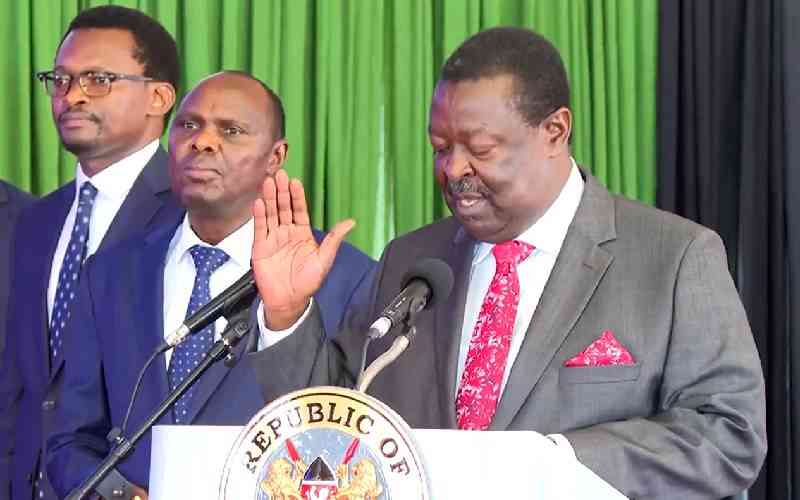×
The Standard e-Paper
Join Thousands Daily

Prime Cabinet Secretary Musalia Mudavadi did not lift the Bible during his swearing-in on Thursday, October 27 at State House, Nairobi.
Mudavadi, instead, lifted his right hand while taking the oath of office presided over by President William Ruto.